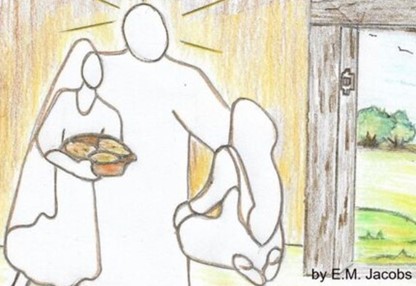
 What is Spirituality?
What is Spirituality?
The meaning of spirituality has developed over time as our understanding of culture, religion, and personal development has changed.
Traditionally, spirituality was part of religious practice and the attempt to inhabit the original shape of things or live in the image of God.
In early Christianity, spirituality was related to living a life orientated by the Holy Spirit. This was later complicated with aesthetic practises like self-flagellation that missed the point.
In modern times, spirituality refers to many experiences and practices. Spirituality tends now to be about the individual on their personal quest for meaning.
Today, spirituality doesn’t automatically include a religious dimension or a communal one.
Spirituality generally is about an encounter, whether it is a communal spiritual, religious or individual experience.
The challenge of spirituality
The challenge with spirituality is to find balance. For Christians, it is the pursuit of an interior life of meaning that is “hidden with God in Christ”.
A healthy “parishioner” spirituality seeks the middle way between the temptation to do nothing on the one hand and to become a religious nutcase on the other.
Healthy parishioner spirituality is the spirituality of the ordinary.
It is the spirituality of the working person, the grandparent, the retired, the school pupil, and the diocesan priest.
The person who lives in the real world and strives to hold competing demands in balance needs a spirituality that gives balance and meaning to life.
There are several tensions that we experience as we develop an interior spiritual life and look for a spirit frame of living to make this happen.
The Tensions
The tension between the holy place and the ordinary place:
Is God most easily found in the church, shrine, and monastery or at home in the kitchen, with the family, in a marriage or on the sports ground?
Is the tension resolved when we remember that God is both transcendent and the immanent, incarnate God?
The tension between sexuality, sexual passion and religious purity or celibacy:
Is God part of your sexuality and sex life or opposed to it? Is your soul fulfilled by eros or awe, and can you have both, or are these mutually exclusive?
If you sublimate your sexuality and its desires, will you be holier or an unhealthy example of a human being?
The tension between community duty and personal fulfilment:
Is the higher call to serve God and others in the community using one’s talents, or to serve one’s freedom?
The Covid experience has brought this question into stark relief. Should individual personal freedom be sacrificed for the common good?
How do we deal positively with the ache for personal love and achievement when acting on this is inappropriate?
The tension between this life and the next:
Am I living for this life or for the next, and what perspective does this give me? Does the life Jesus promises begin now for me or does it begin at my death?
Is this life a “veil of tears” or the way God leads me to life?
The tension between intellect and will:
What rules my life, my heart or my head? Am I ruled by one more than the other and more a prey to one than the other?
Do my thoughts or my feelings reveal God’s presence to me?
Parishioner spirituality
Parishioner spirituality is ordinary spirituality.
This spirituality gives time to BOTH God and the family, the church and the world, the soul and society.
It is aware of colleagues and friends.
It is practical, straightforward, generous, and sensible.
When a person spends all day in front of the tabernacle and forgets to nurture their relationships, feed the hungry, clothe the naked or visit the prisoner, there is a significant problem.
Parishioner spirituality doesn’t get distracted by devotions when there are people to be fed.
Parishioners’ children, families, friends and enemies don’t go hungry because they have forgotten to shop or won’t prepare a meal. Their marriages don’t go bust because they spend more time with their devotions than their spouse.
Those that disagree might think they are better fitted for a monastery, but the monastery won’t want them because there, too, the rule is Ora et Labora (prayer and work). A spiritual life is not an abdication from living.
Parishioner spirituality takes time for contemplation, action, socialising and rest. It is a lifetime of gentle fidelity to God and neighbour and a healthy awareness of self.
It is easy for good people to get hooked into religion, private prayer and social service and social justice and forget that they have family members to serve. This is part of the message of the Gospel of Martha and Mary.
Life and spirituality are not binary; they aren’t intrinsically oppositional.
Ancient wisdom suggests that a healthy spiritual life and living a healthy human life is the key to happiness.
Next Item – Synod Feedback


